Innovation in thinking and scientific action: the method of Design Thinking for nursing
Innovación en pensamiento y acción científica: el método de Design Thinking para enfermería
Inovando no pensar e no agir científico: o método de Design Thinking para a enfermagem
Eny Dórea Paiva; Margareth Santos Zanchetta; Camila Londoño
Abstract
Objectives: To report experiences during a post-doctoral fellowship which included acquired knowledge about the method of Design Thinking and its dissemination in a scientific nursing event.
Method: A report of experience conducted in Canada and the acquisition of new knowledge in research and teaching.
Results: The fellowship established new knowledge in the fields of research and teaching. The most challenging opportunity was the introduction and adoption of Design Thinking. It increased awareness of the urgency to adopt a new paradigm to think, collaborate, teach, design, plan, execute and evaluate research-related activities. After participants reflected about Design Thinking, there was an opportunity to promote a pilot initiative to translate the knowledge about this concept and observe the participants’ positive reception in a scientific event.
Conclusion: The experience allowed the acquisition of knowledge beyond nursing and the stimulation of critical thinking; this strengthened the confidence to think and innovate in the production of knowledge.
Implications for practice: It is undeniable that Design Thinking may revolutionize education if it is added to health courses as a cognitive tool, inspired by humanistic and empathic values, that reconstructs human inventiveness; this method assures the quality of services and products while respecting the customer's profile.
Keywords
Resumen
Palabras clave
Resumo
Objetivos: Relatar experiências vivenciadas durante um estágio de Pós-Doutorado, o conhecimento adquirido sobre o método de Design Thinking e a socialização desse método em evento científico de Enfermagem.
Método: Trata-se do relato de experiência de um Pós-Doutorado realizado no Canadá e da aquisição de novos conhecimentos na área da pesquisa e do ensino.
Resultados: A oportunidade mais desafiadora foi a aproximação com o Design Thinking, pois esse conceito promoveu a consciência sobre a urgência de adotar um novo paradigma para pensar, colaborar, ensinar, desenhar, planejar, executar e avaliar as atividades de pesquisa. Após constantes reflexões sobre Design Thinking, houve a oportunidade de promover uma iniciativa-piloto de tradução de conhecimento do método e observar a excelente receptividade dos participantes no evento.
Conclusão: A experiência permitiu a aquisição de conhecimentos além da Enfermagem, estimulando o pensamento crítico e fortalecendo a destemida capacidade de pensar e inovar na produção de conhecimento.
Implicações para a prática: É inegável que o Design Thinking poderá revolucionar a educação, mediante sua inserção nos cursos da área da saúde, configurando uma ferramenta cognitiva que reconstrói a engenhosidade humana inspirada em valores humanísticos e empáticos, assegurando a qualidade de serviços e produtos, e respeitando o perfil do cliente.
Palavras-chave
Referencias
1 Plattner H, Leifer L, Meinel C. Design thinking research: building innovators. 1st ed. Cham: Springer International Publishing; 2015. 289 p. vol. 1.
2 IDEO U. Design thinking [Internet]. 2020 [citado 2020 fev 3]. Disponível em:
3 Thompson MR, Barcott DS. The role of the nurse scientist as a knowledge broker. J Nurs Scholarsh. 2019;51(1):26-39.
4 Ribeiro-da-Silva M, Oliveira-Silva D, Andrade-Teles-Monteiro N, Matos-Santana R, Ramos-da-Cruz-Almeida T, Santos-Rocha S. Diagnoses, results, and nursing interventions in c-sections. Rev Enferm UFPE Online. 2018 dez 2;12(12):3221-30.
5 Zancheta MS, Santos WS, Felipe ICV, Lucchese S. Formação audaciosa do enfermeiro-cientista. Online Braz. J. Nurs. 2018;16(3):238-40.
6 Yates P. Design thinking can it enhance nursing research? Cancer Nurs. 2018;41(4):344-5.
7 Beaird G, Geist M, Lewis EJ. Design thinking: opportunities for application in nursing education. Nurse Educ Today. 2018 maio;64:115-8.
8 Eines TF, Vatne S. Nurses and nurse assistants’ experiences with using a design thinking approach to innovation in a nursing home. J Nurs Manag. 2018;26(4):425-31.
9 McLaughlin JE, Wolcott M, Hubbard D, Umstead K, Rider TR. A qualitative review of the design thinking framework in health professions education. BMC Med Educ. 2019;19(1):98.
10 Toso BRGO, Padilha MI, Breda KL. The euphemism of good practice or advanced nursing practice. Esc Anna Nery. 2019;23(3):e20180385.
11 Elmore J, Wright DK, Paradis M. Nurses’ moral experiences of assisted death: a meta-synthesis of qualitative research. Nurs Ethics. 2018;25(8):955-72.
Submitted date:
31/10/2019
Accepted date:
09/02/2020



